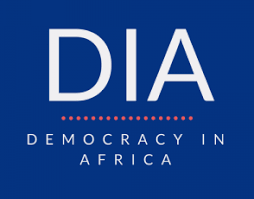A well-known Ethiopian proverb runs: “When the great lord passes, the peasants bow and silently fart”. Voters in countries like Kenya, Malawi and Zambia have always critiqued those in power – and that critique is becoming more sophisticated with every passing election, notes Nic Cheeseman, Professor of Democracy at the University of Birmingham and author of ‘How to Rig an Election’.
Failing to recognize the power of ideas and ideologies can therefore be fatal, both for political leaders trying to hold onto power and for researchers and journalists seeking to explain how politics works, he writes for Africa Report:
 African elections are often assumed to revolve around ethnicity, and political mobilization to take place solely through patron-client networks. In this model, leaders don’t need to persuade citizens to support them, they just need to organize their lieutenants and make sure that there is enough patronage to keep everyone happy. Elections are won by the “tyranny of numbers”, rather than the quality of arguments. ….But while the choice of political ideas and ideologies is never free of self-interest, it is also true that ideas can capture the imagination of both leaders and citizens in ways that have profound effects on everyday politics.
African elections are often assumed to revolve around ethnicity, and political mobilization to take place solely through patron-client networks. In this model, leaders don’t need to persuade citizens to support them, they just need to organize their lieutenants and make sure that there is enough patronage to keep everyone happy. Elections are won by the “tyranny of numbers”, rather than the quality of arguments. ….But while the choice of political ideas and ideologies is never free of self-interest, it is also true that ideas can capture the imagination of both leaders and citizens in ways that have profound effects on everyday politics.
The most recent rise in violent conflict and coups in Africa, the threats coups pose to fragile democratic institutions, governance, and civil society, and options to prevent further military takeovers are addressed by Council on Foreign Relations panelists (above).
Speakers:
 Credit: USIP
Credit: USIPKamissa Camara (right), Senior Visiting Expert for the Sahel, United States Institute of Peace; Former Foreign Minister of Mali (2018–2019); Former Secretary General to the President of Mali (2020); and former National Endowment for Democracy (NED) staffer; Christopher Fomunyoh Senior Associate and Regional Director for Central and West Africa Programs, National Democratic Institute; Jendayi E. Frazer, Duignan Distinguished Visiting Fellow, Hoover Institution, Stanford University; Former U.S. Assistant Secretary of State for African Affairs (2005–2009); NED board member; Presider – Shannon L. Smith Middle East and Africa Section Research Manager, Congressional Research Service; CFR Member.







